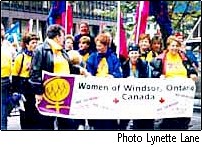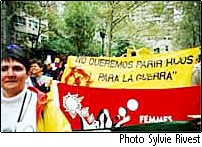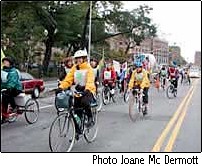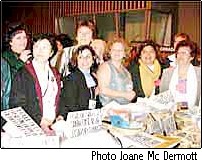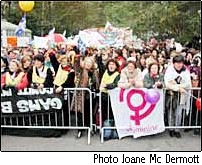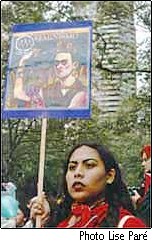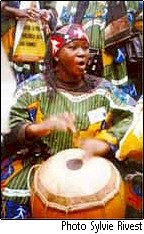Five women (an Aboriginal woman from Canada and women from India, Morocco, Mozambique
and Peru) presented the March demands on behalf of women of the world, reminding the UN of its responsibilities in the campaign to fight violence against women and to ensure peace.
They called on UN member states to observe international Conventions and decisions and denounced the lack of international representation for Indigenous women and the unfairness of a decision-making practice that grants certain nations the right to veto.
They demanded debt cancellation for poor countries, an end to neoliberal economic policies, an end to patriarchy and decriminalization of homosexuality. In addition, they demanded the criminalization of acts like rape, incest, selective abortion of female fetuses, female infanticide, genital mutilation and the sex trafficking of women.
While claiming that globalization is irreversible, Ms. Fréchette admitted that the positive economic fallout must be shared more equitably. "Poverty has a sex, and it is female," she said. She promised to transmit the women's demands to UN Secretary-General Kofi Annan.
Six women from areas ravaged by conflict (Afghanistan, Colombia, Kurdistan, Palestine, Rwanda and the Federal Republic of Yugoslavia) then gave concrete examples of women's suffering in times of conflict: rape, forced displacement, insecure living conditions.

